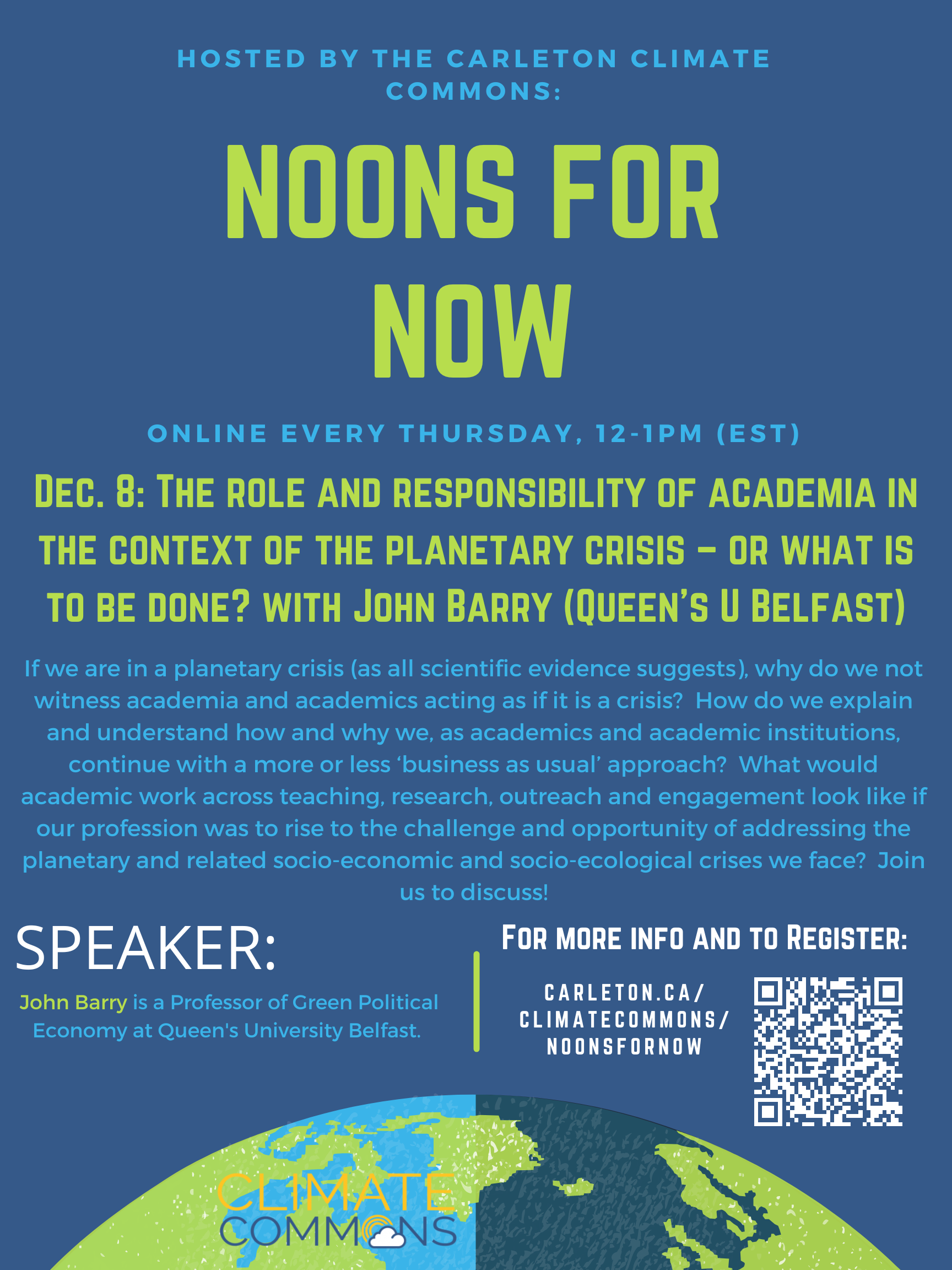If we are in a planetary crisis (as all scientific evidence suggests), why do we not witness academia and academics acting as if it is a crisis? How do we explain and understand how and why we, as academics and academic institutions, continue with a more or less ‘business as usual’ approach? What would academic work across teaching, research, outreach and engagement look like if our profession was to rise to the challenge and opportunity of addressing the planetary and related socio-economic and socio-ecological crises we face? Is badging our research with one of the 17 Sustainable Development Goals and a university corporate ‘sustainability plan’ the best we can do?
This paper is a personal reflection on how academia should transform itself, indeed remake and reimagine itself in the context of the Anthropocene/Capitalocene, and the intersections of the climate and biodiversity crisis with growing inequality and injustice within and between societies. What is our responsibility as trusted sources of knowledge production and dissemination? Should we become more activist oriented and more engaged in informing the public about the causes, consequences and solutions to our worsening predicament as groups like Extinction Rebellion and Faculty for Future suggest? How do we transform academia starting from the difficult assessment that as currently constituted universities play a key role in the reproduction of unsustainability? This they do, for example, through maintaining (or in some cases actively promoting) research, development and employment links with extractive and polluting industries and by uncritically teaching unsustainable perspectives and practices, including the ‘common-sense’ positive neoclassical economics perspective on the (ecocidal) pursuit of indefinite economic growth. Yet, as highly resourced and influential institutions, universities have an inherently transformative potential, should those resources be redirected and redistributed to progressive social and ecological ends that challenge, rather than support, our unsustainable political and economic status quo. As workers within these institutions, academics and researchers are therefore faced with a choice: to be agents of this reproduction or to be advocates and activists for radical transformation and change.
Speaker:
John Barry is a Professor of Green Political Economy at Queen’s University Belfast.
Resource List
Efforts to Support Diverse Faculty
Universities and Fossil Fuels
Drilled Podcast episode: “Universities Are Starting to Break Their Addiction to Fossil Funding”
